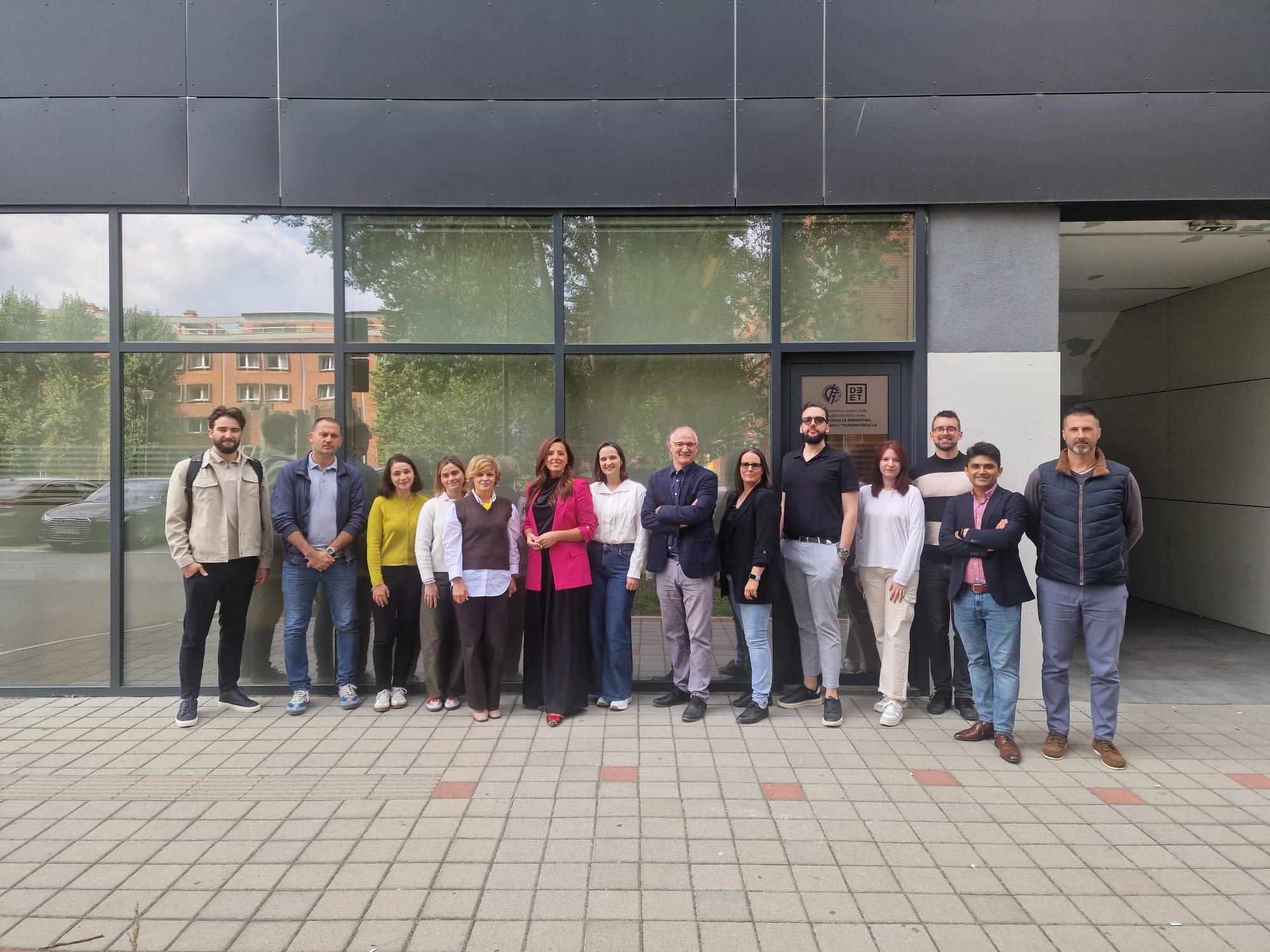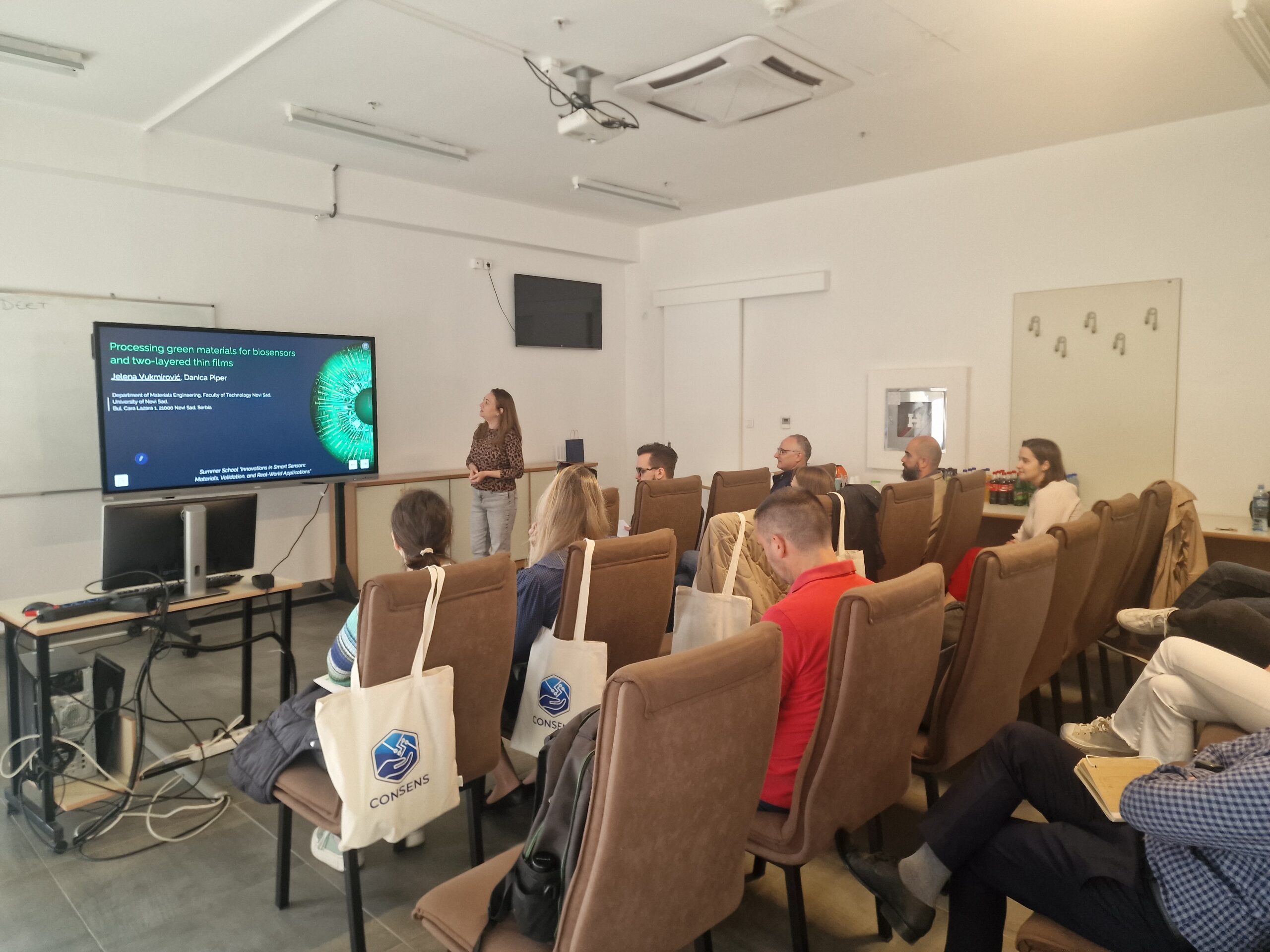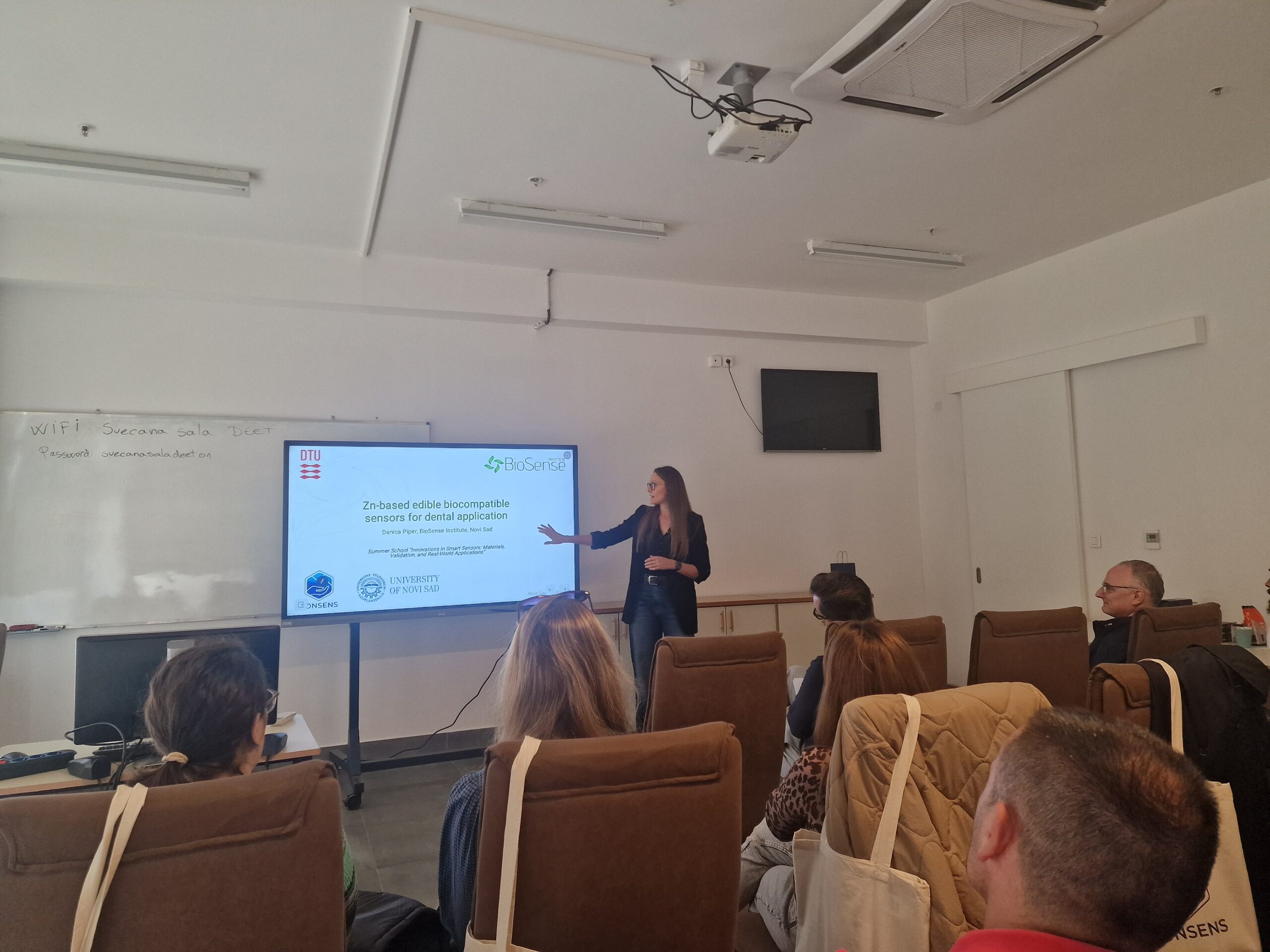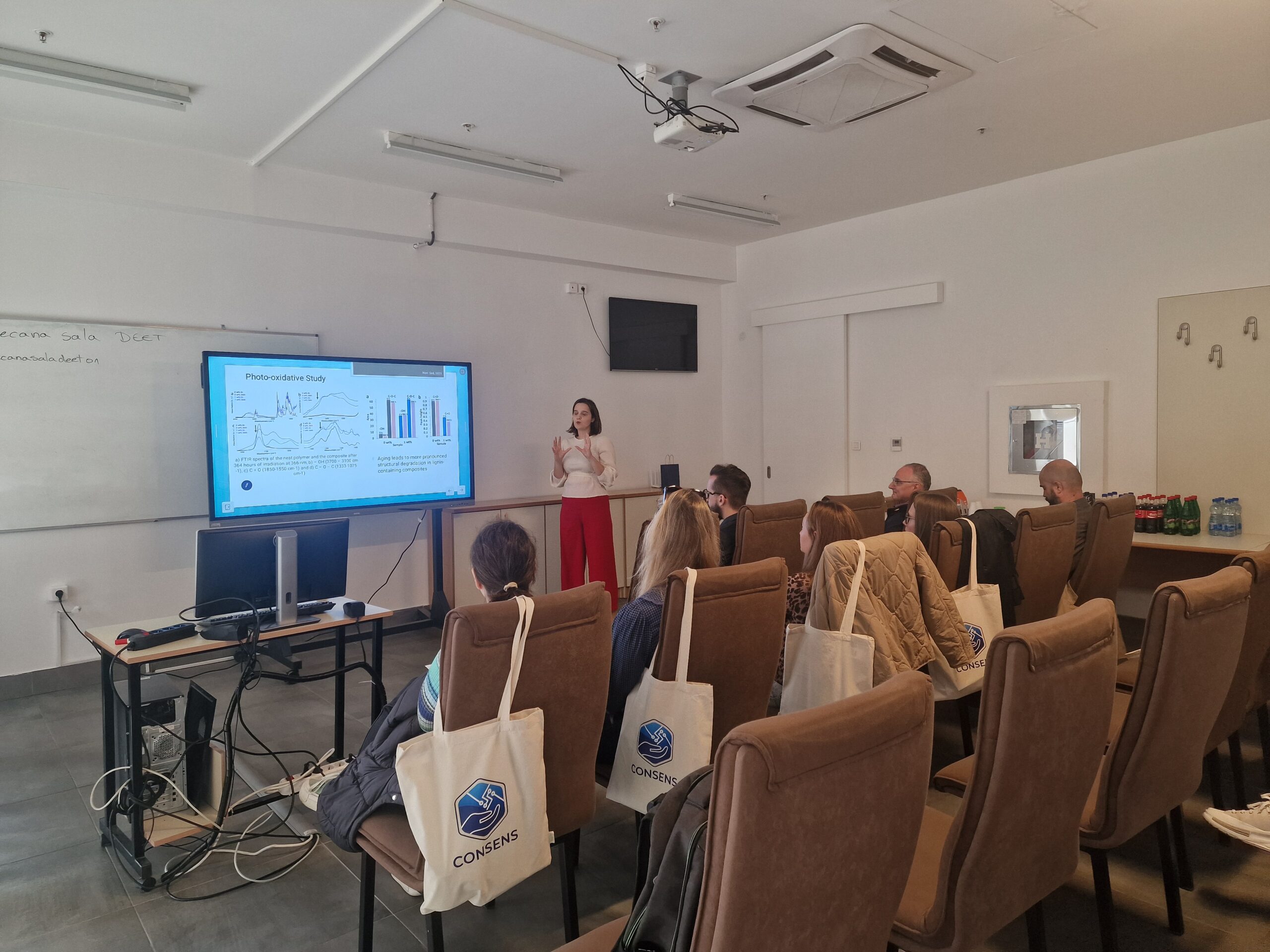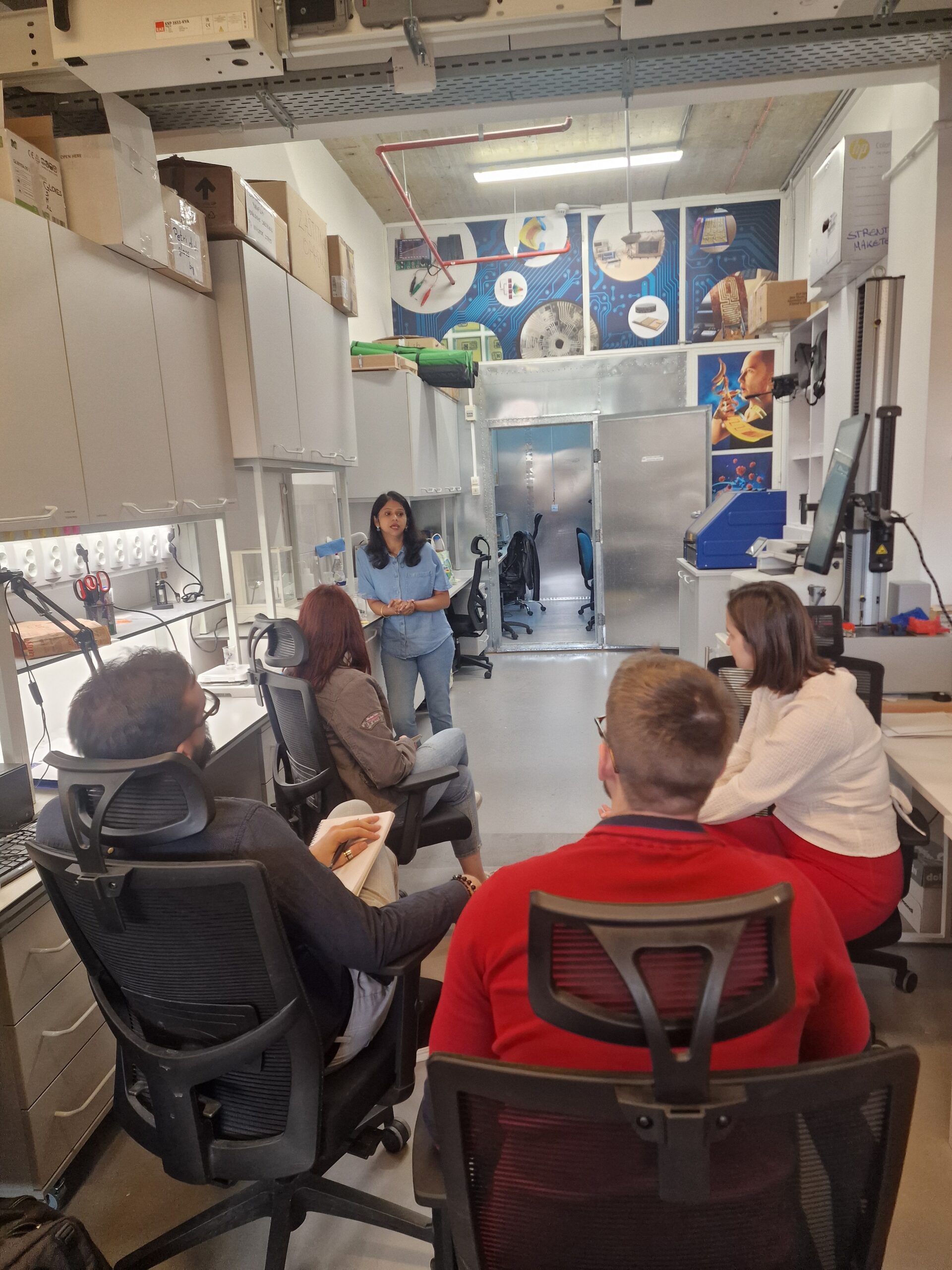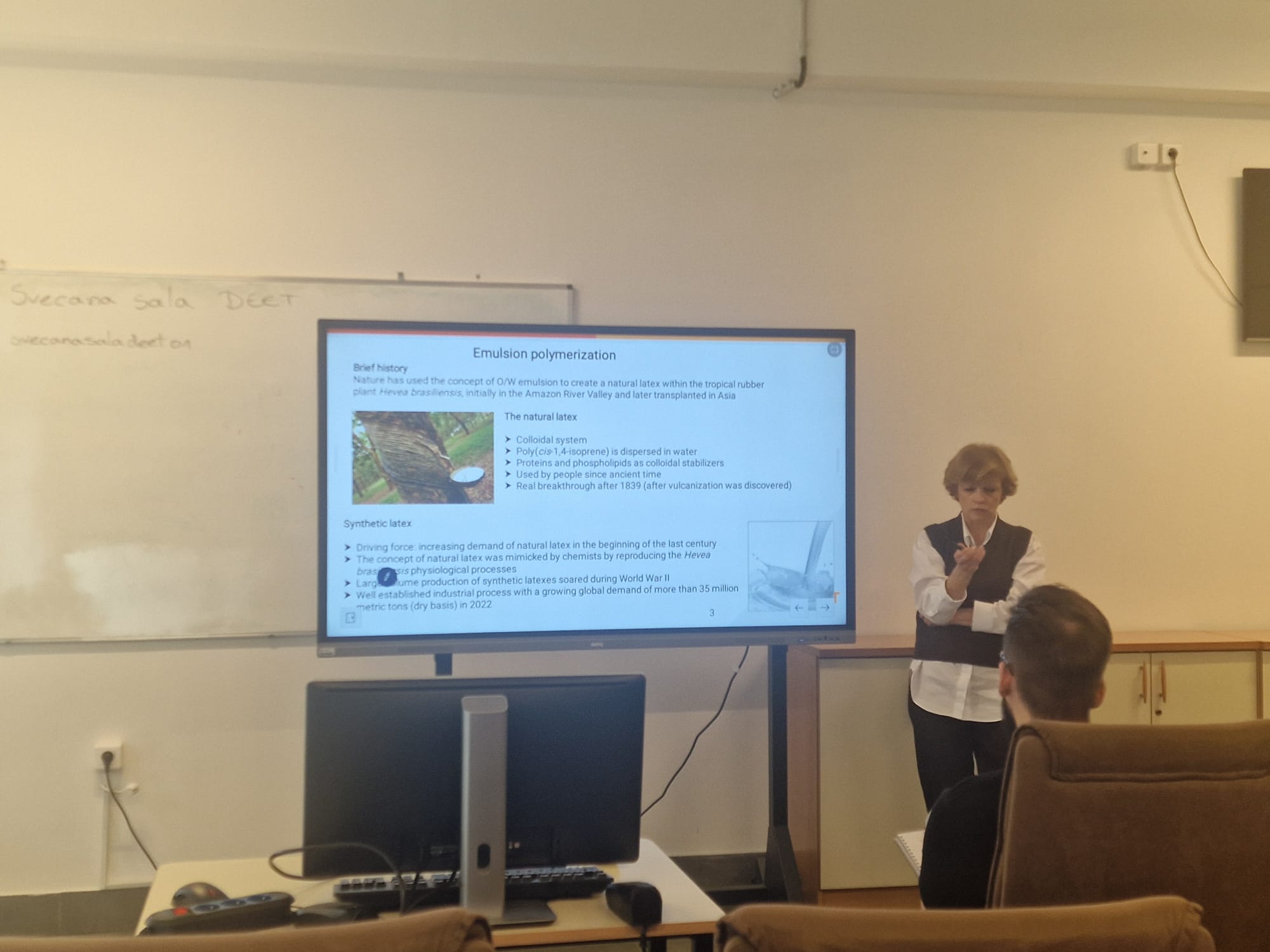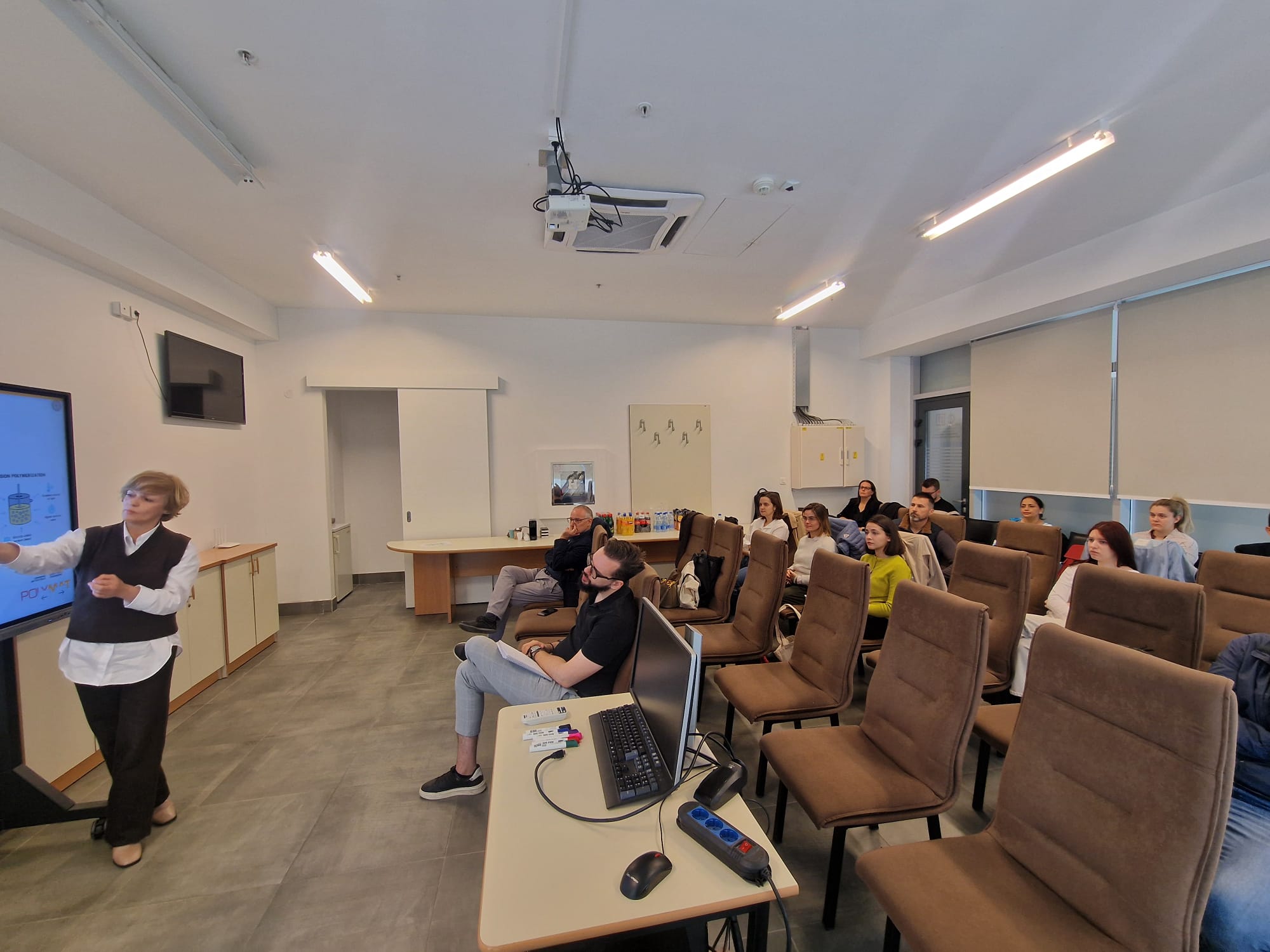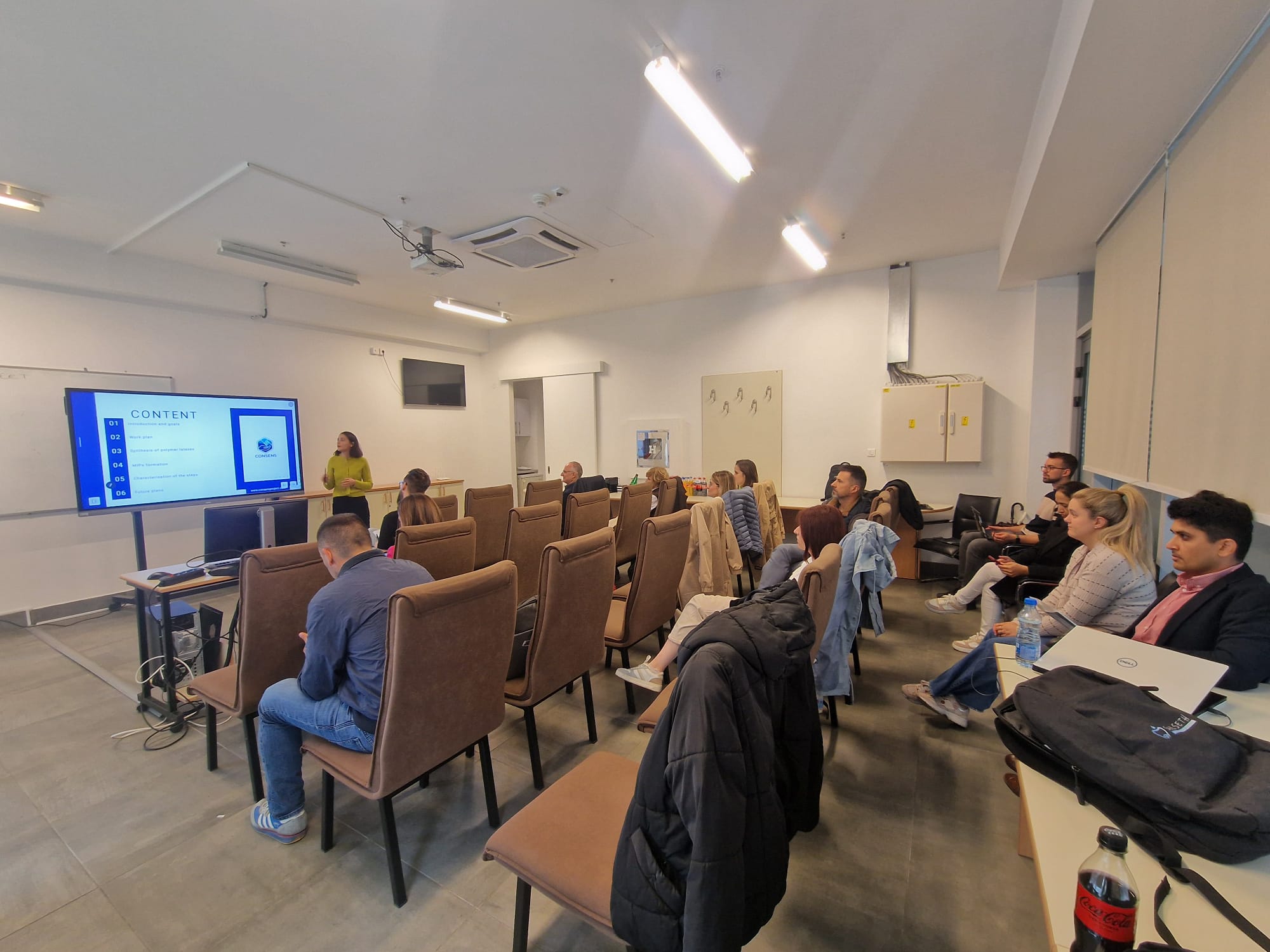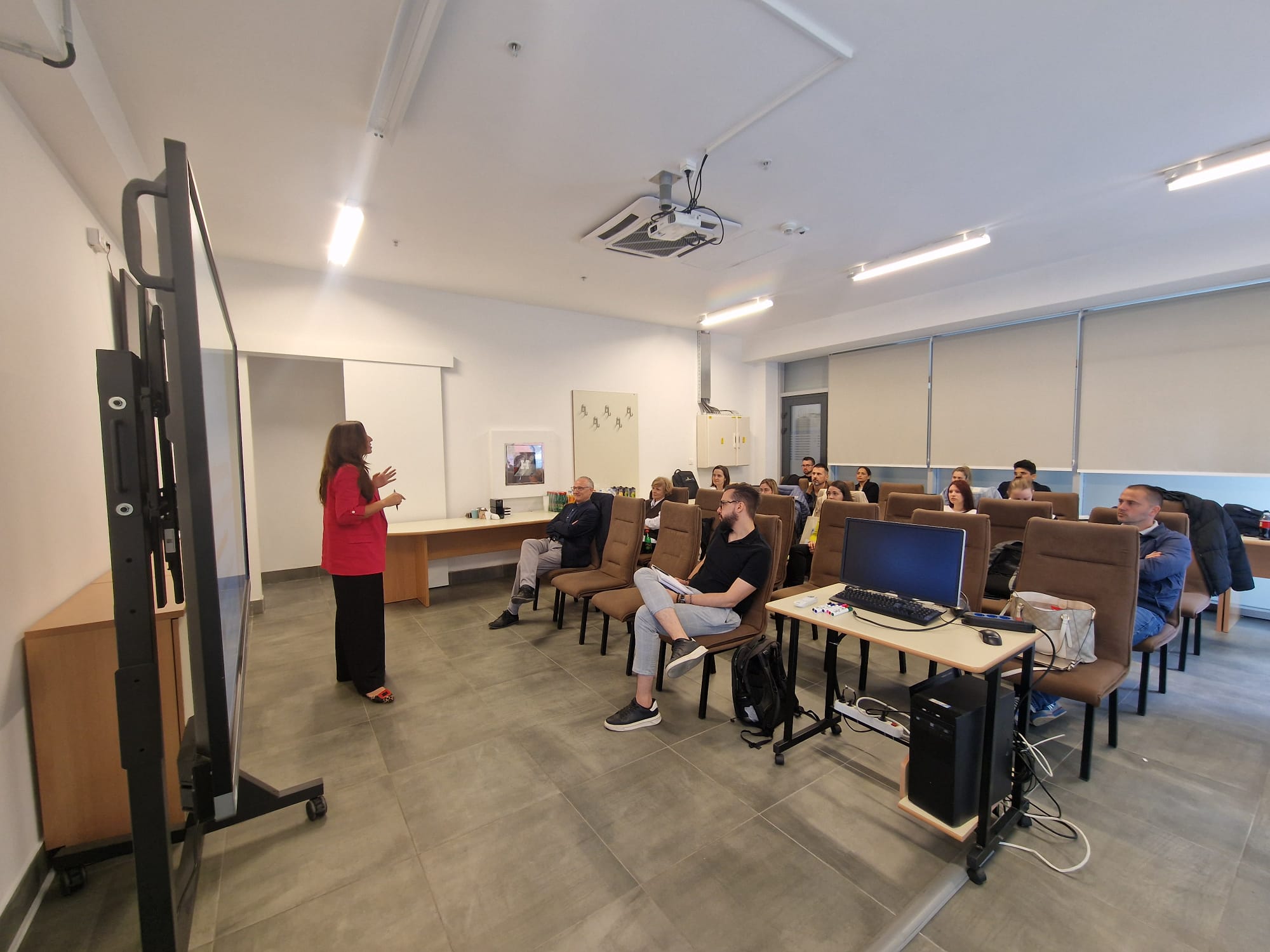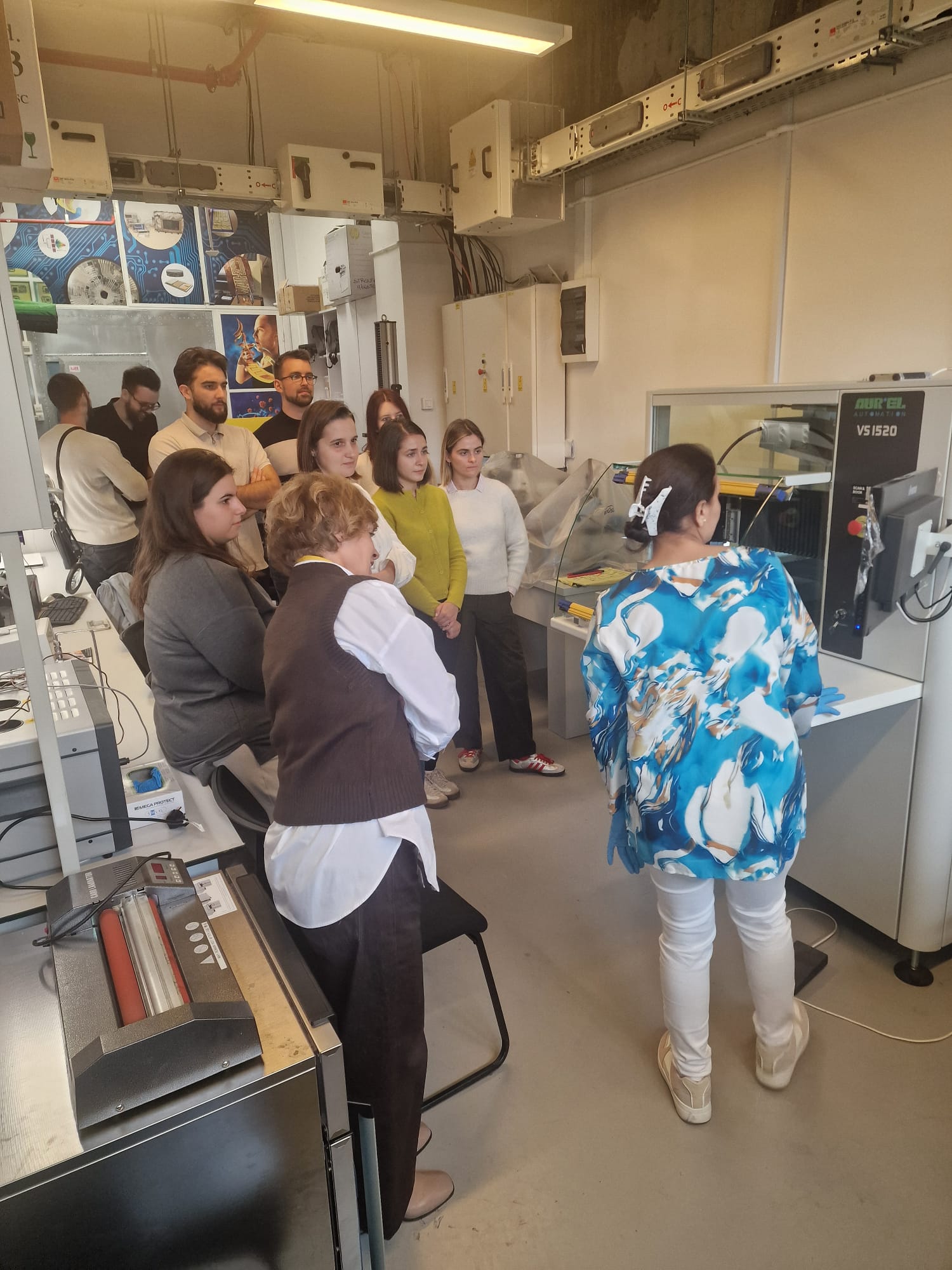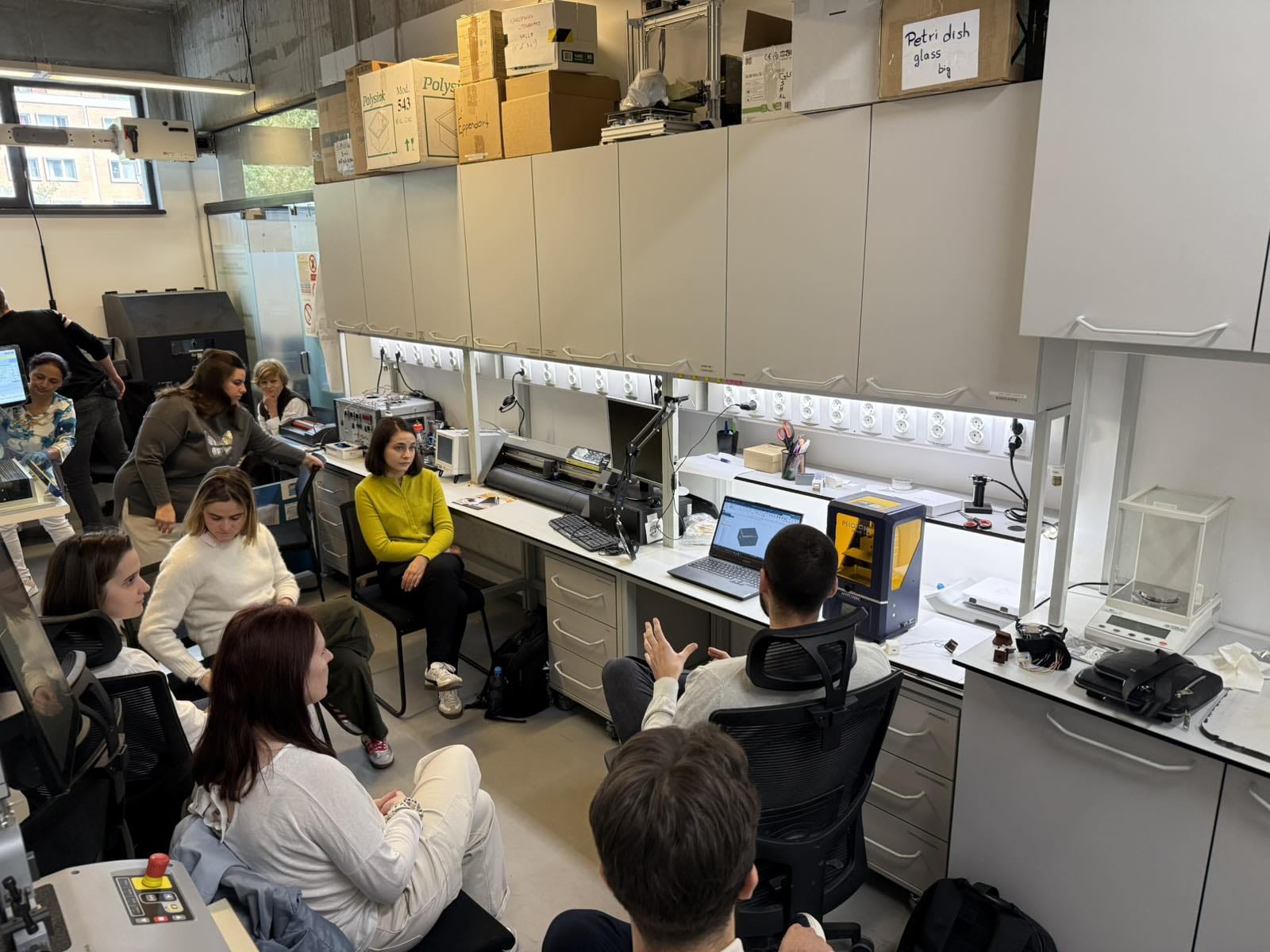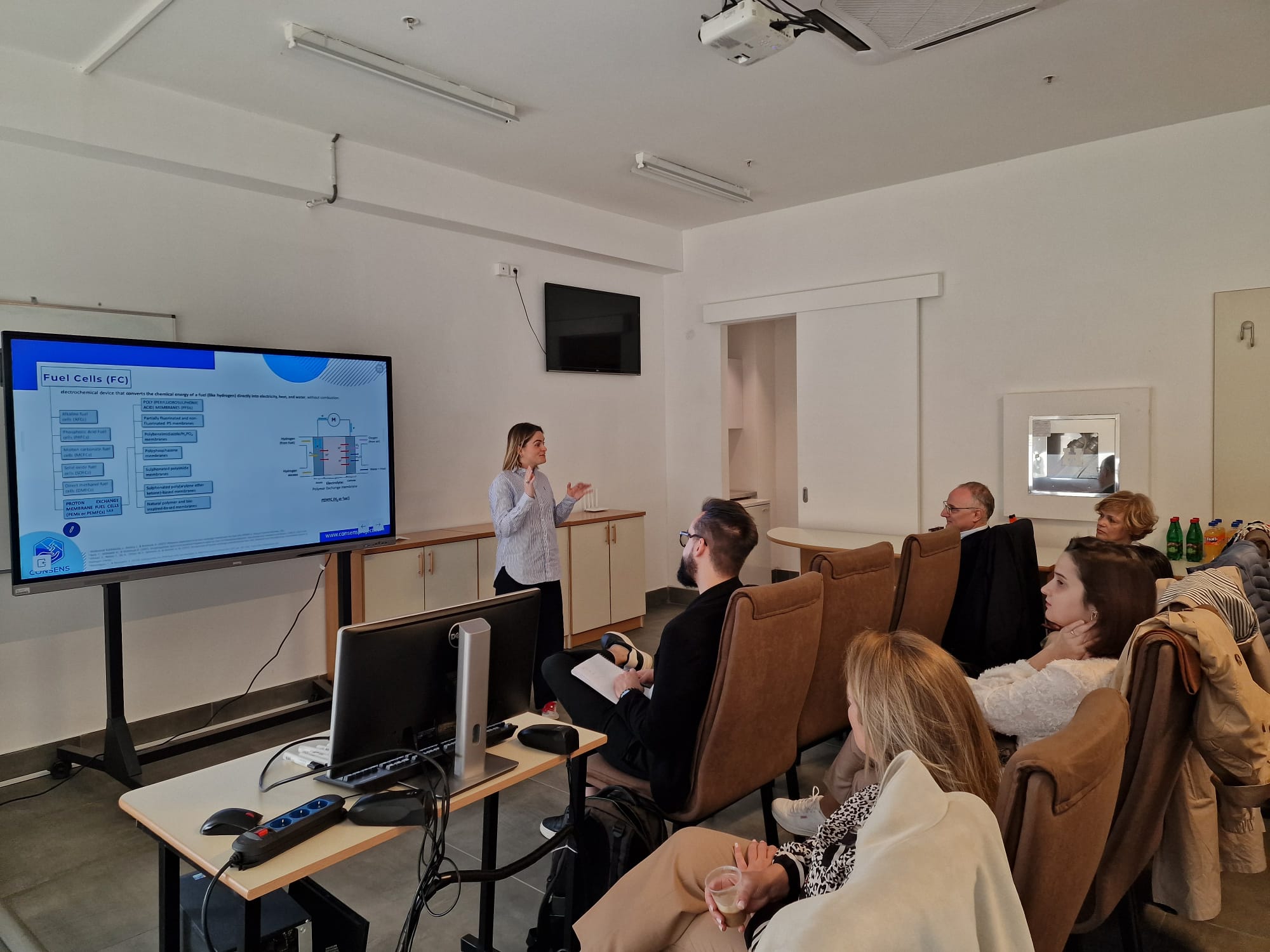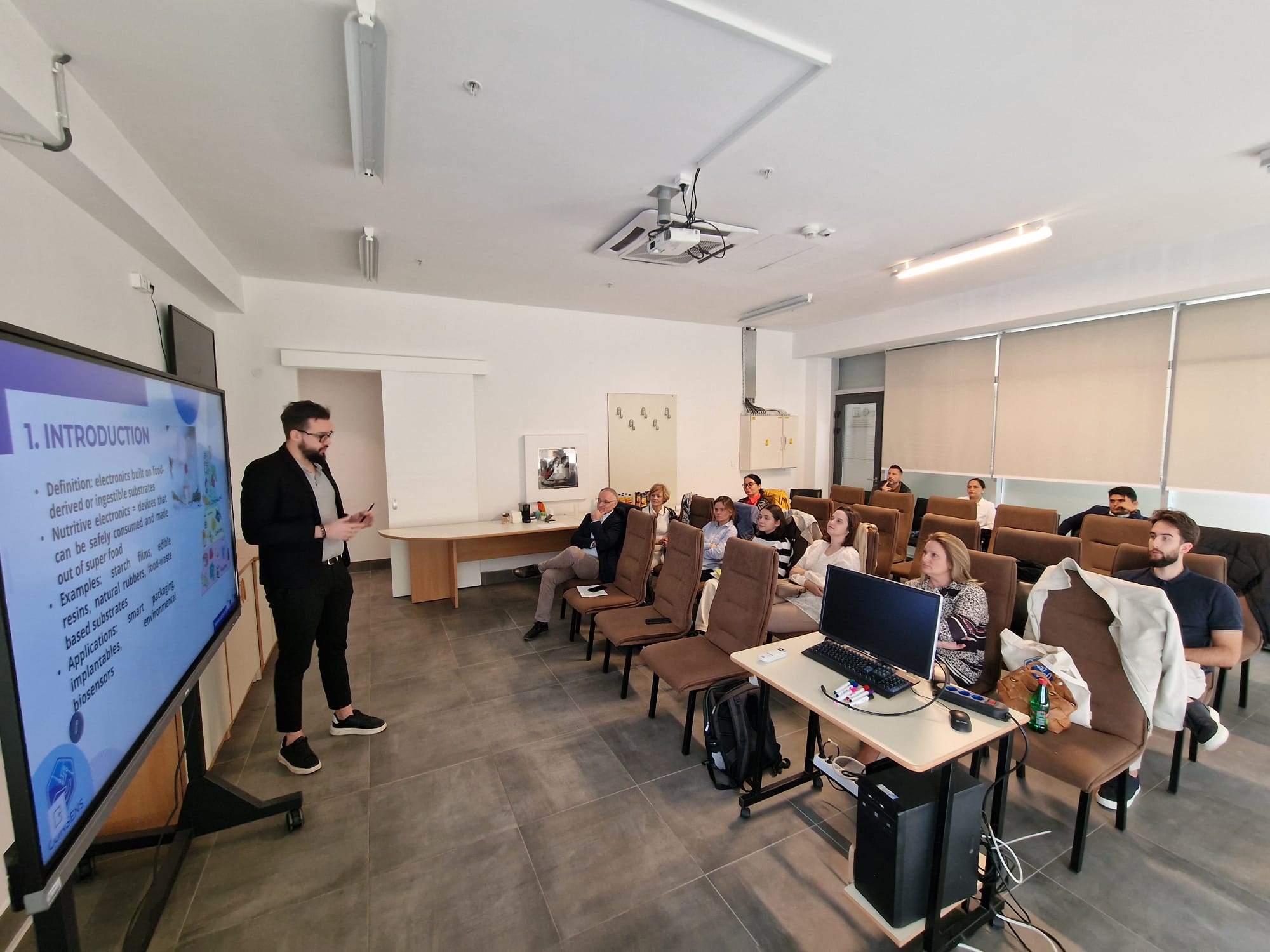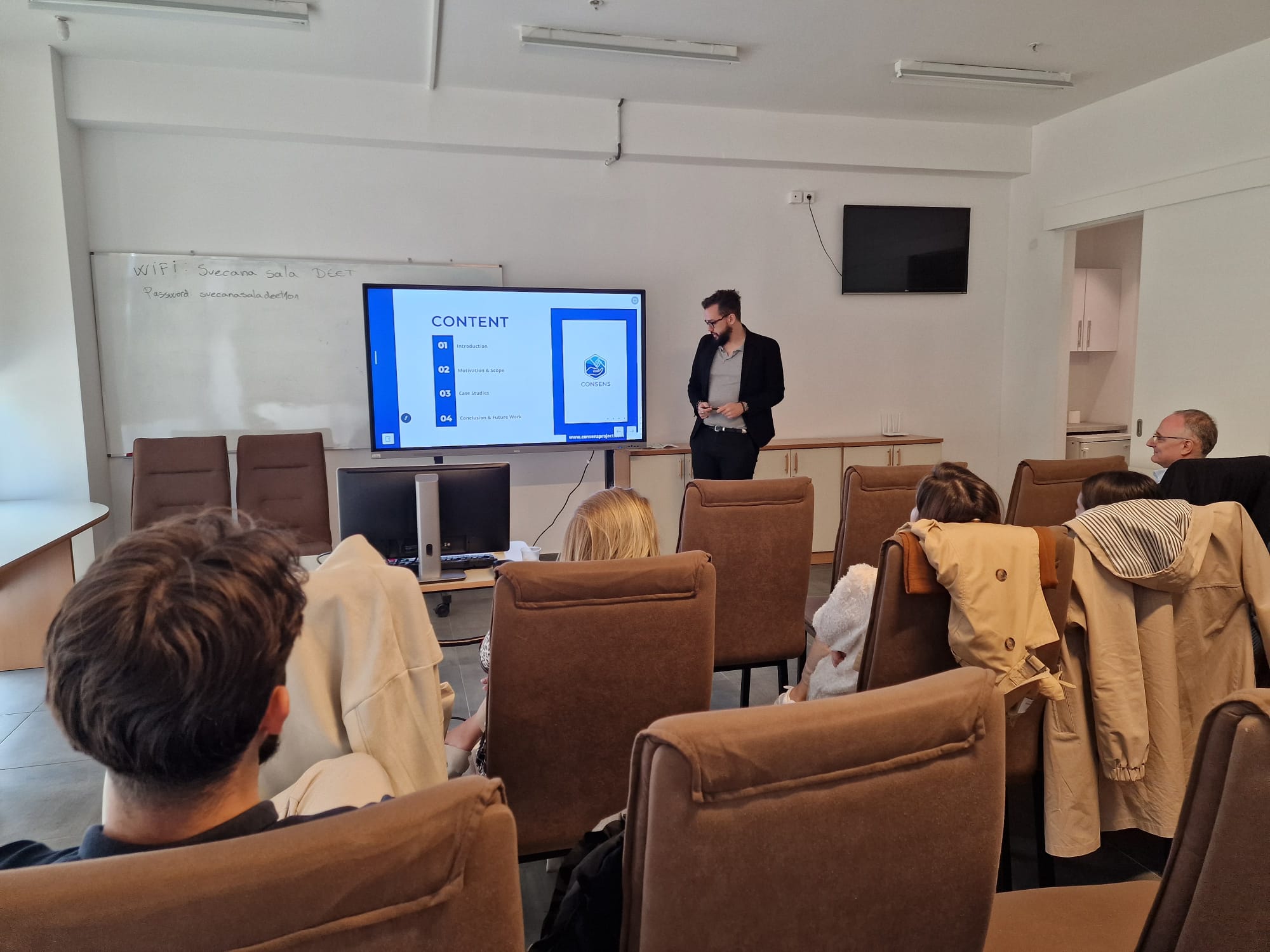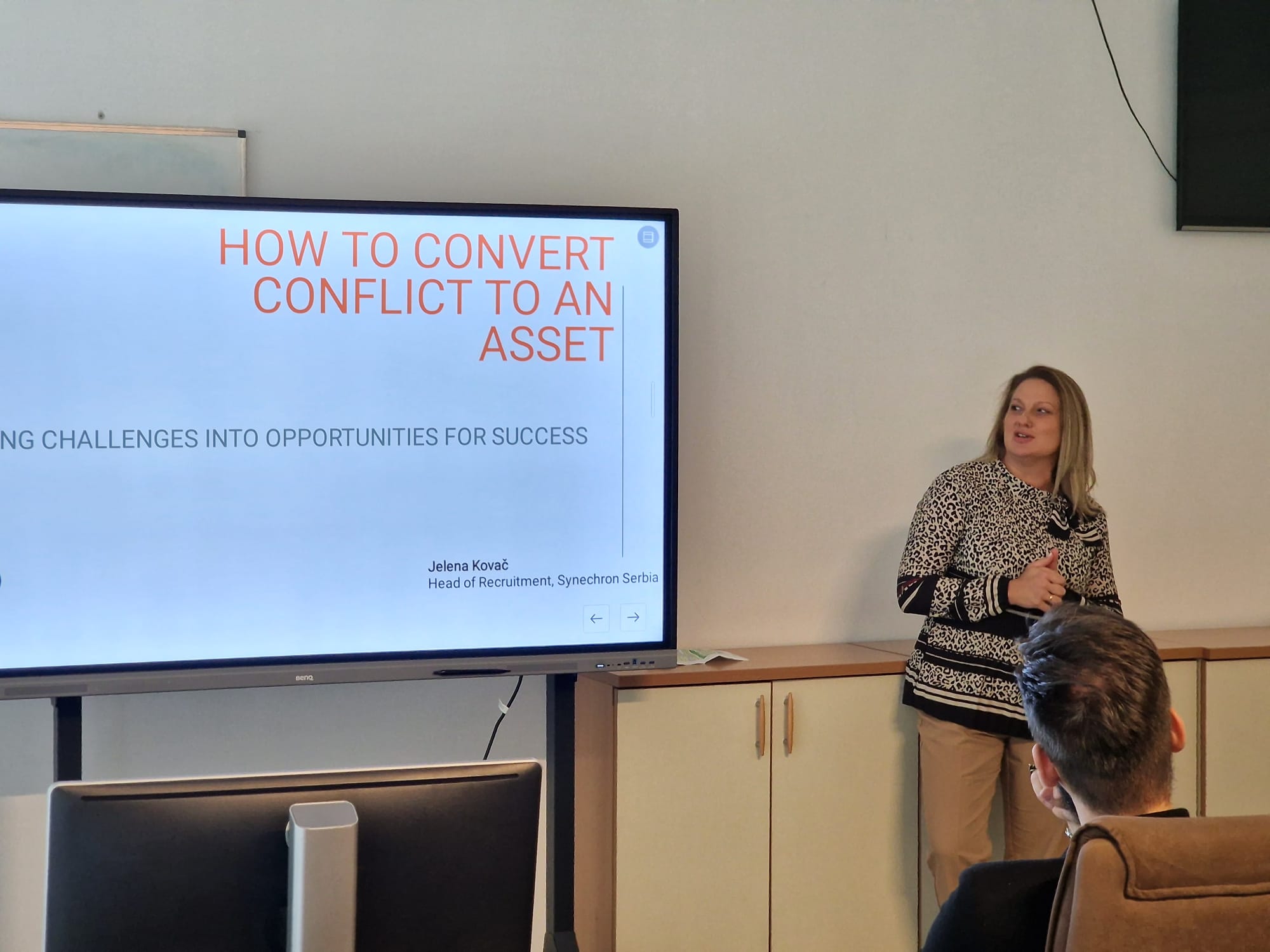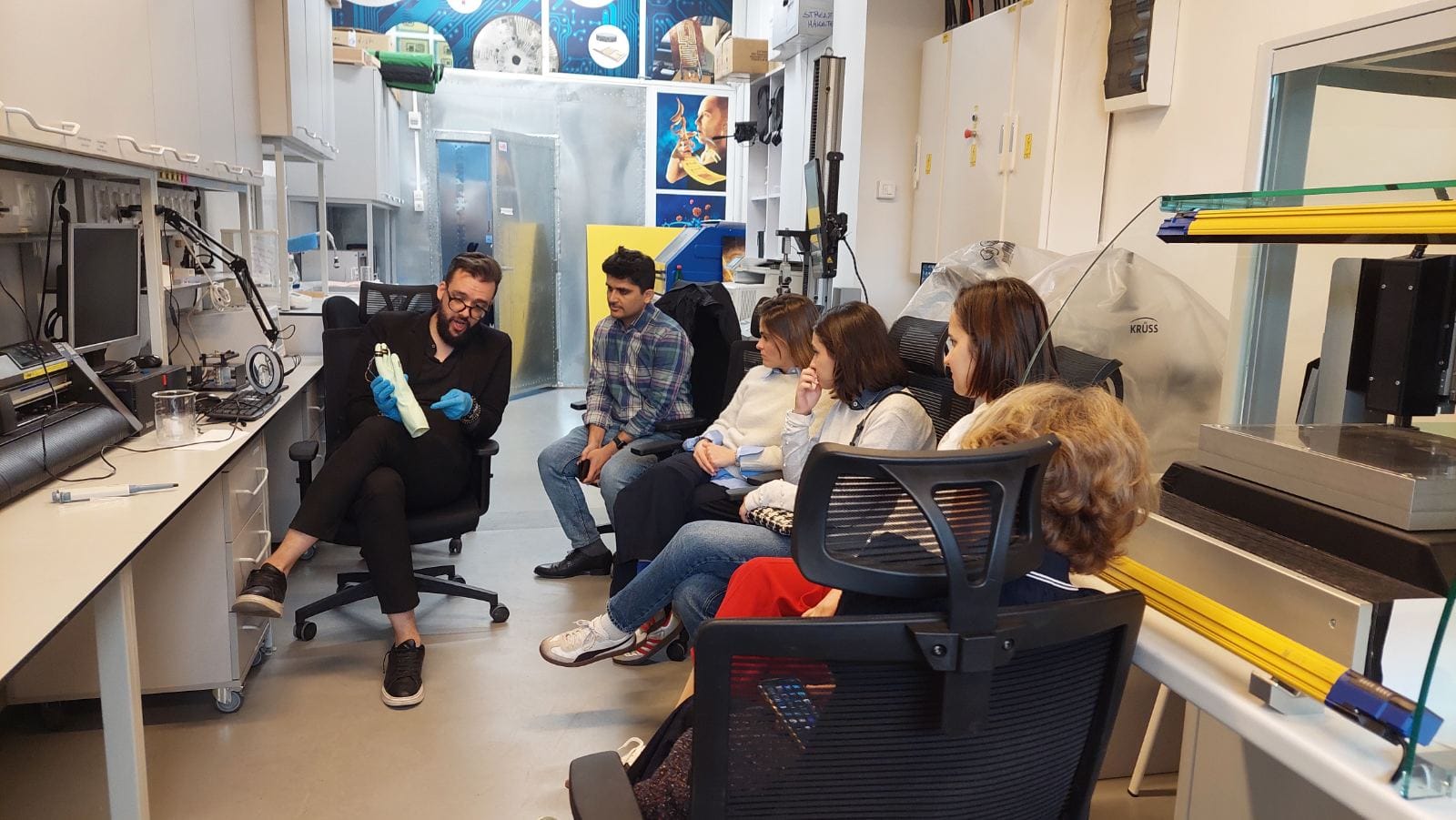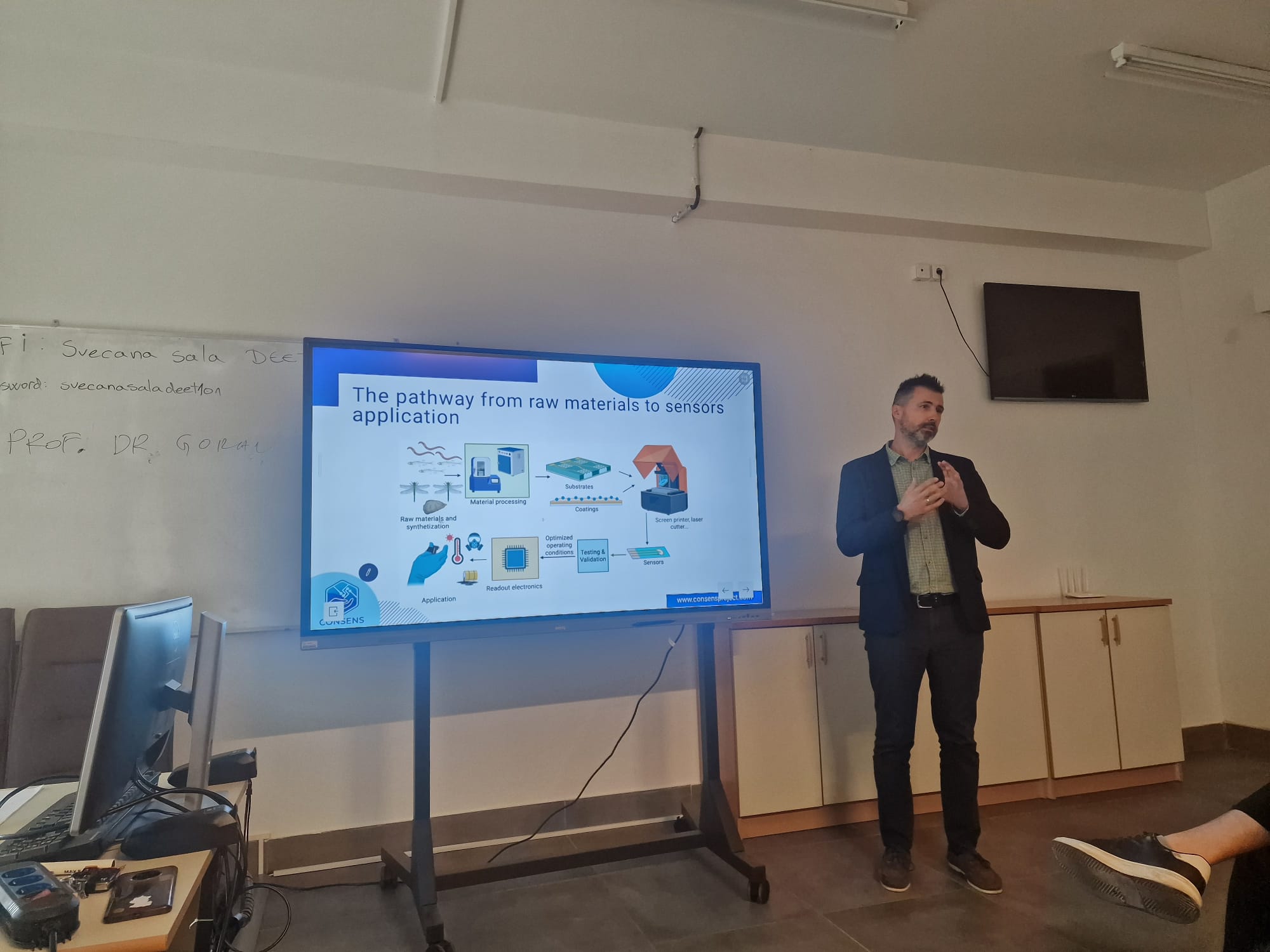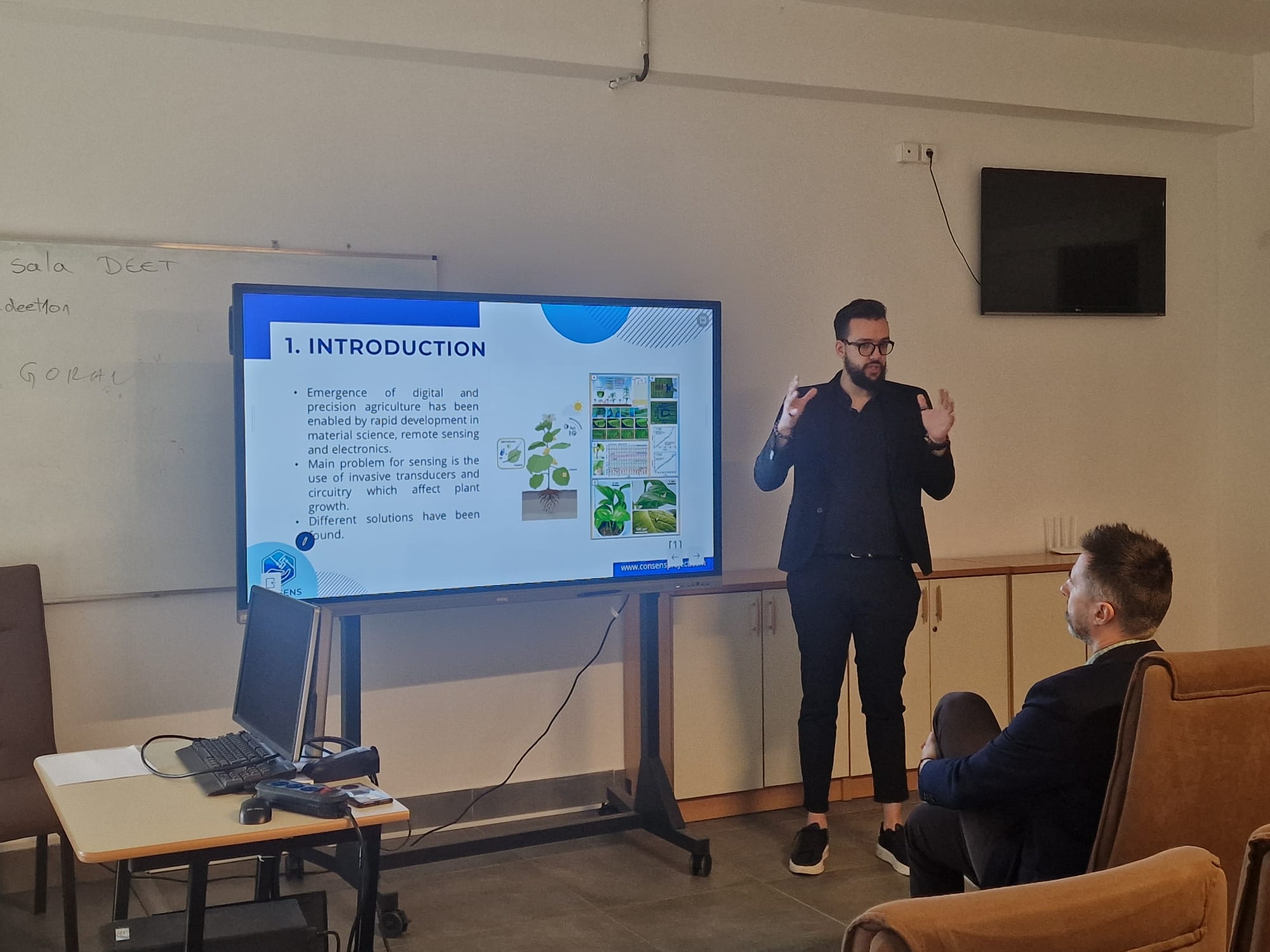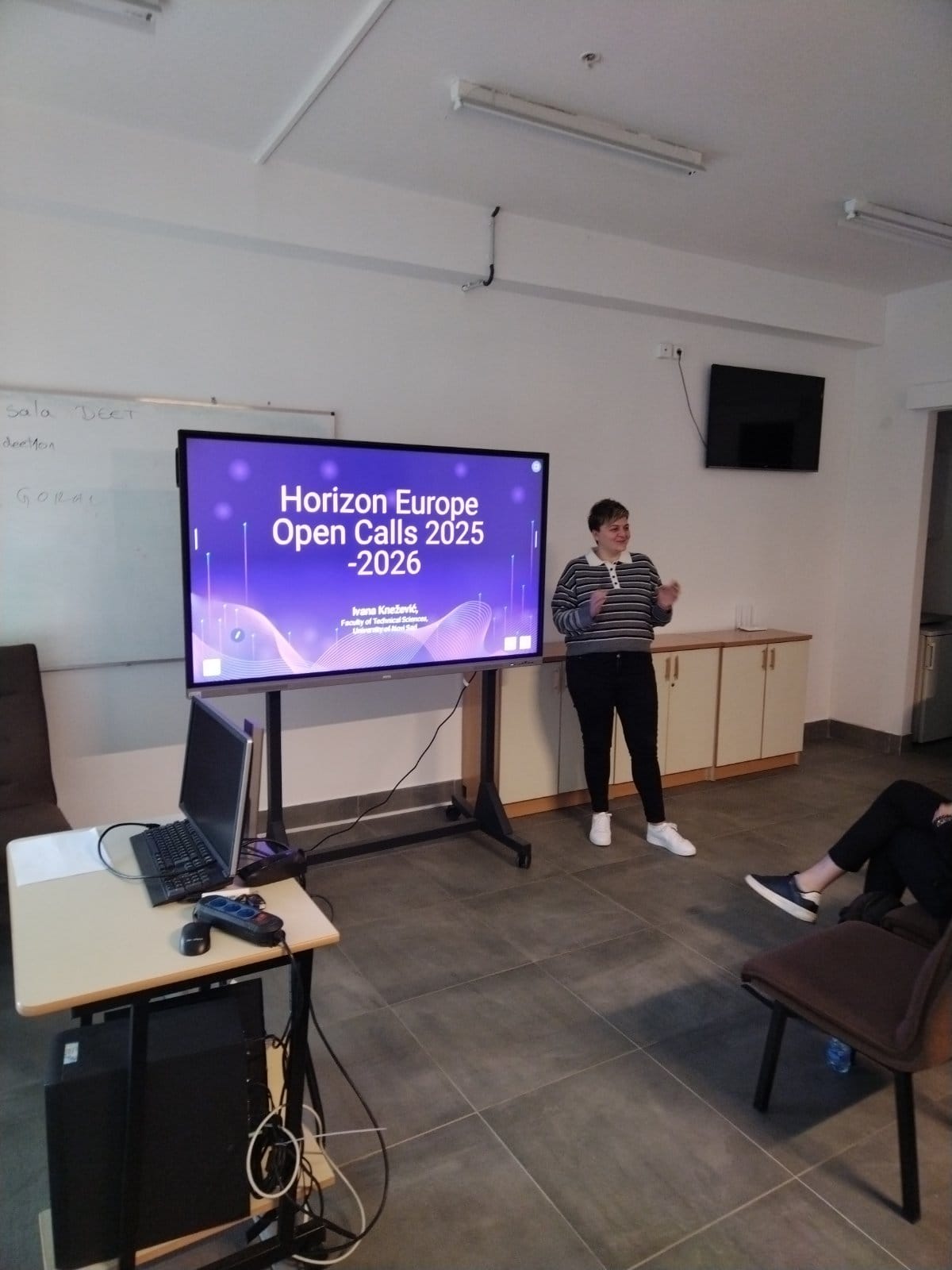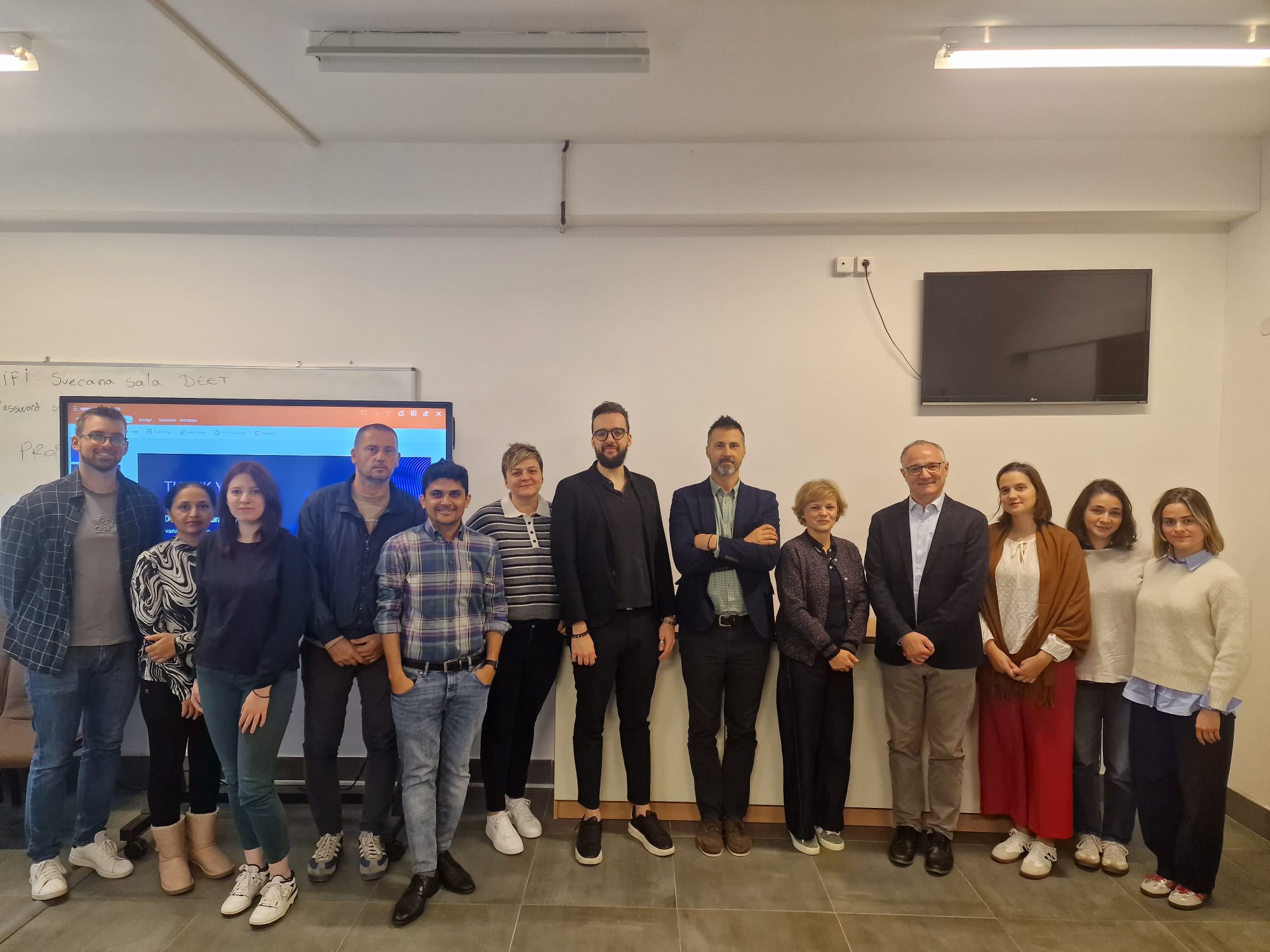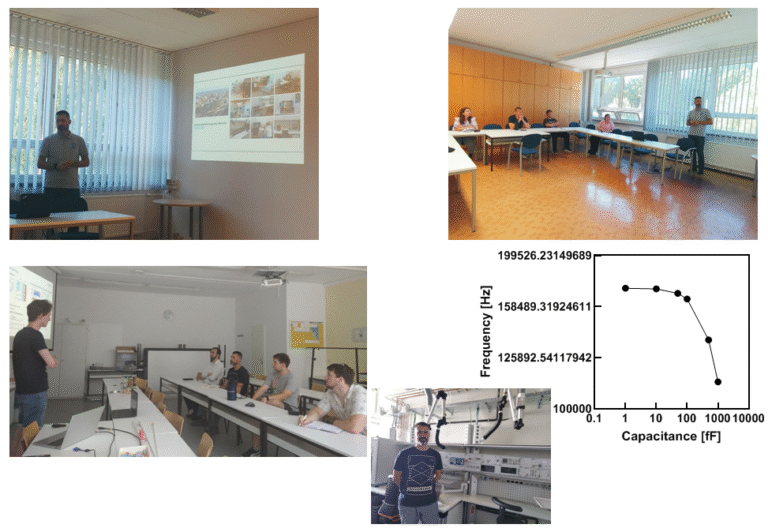As part of the CONSENS project (Conductive Composite Based Flexible and Wearable Chemical Sensors), a four-day summer school was held from September 30 to October 3, 2025, at the Science and Technology Park building in Novi Sad, Serbia. The program brought together young researchers, students, and professionals interested in the latest developments in smart sensor technologies.
Each day was dedicated to a specific theme. From materials and fabrication methods to testing and real-world applications, combining expert lectures, a soft-skill session, and hands-on laboratory work.
Day 1 – Materials
The opening day of the summer school was marked by lectures focused on materials for green and sustainable sensor technologies.
Danica Piper and Jelena Vukmirović from the BioSens Institute and the Faculty of Technology, Novi Sad, presented their work on processing green materials for biosensors and two-layered thin films, highlighting eco-friendly approaches in modern material science. Following that, Marija Prosheva from Ss. Cyril and Methodius University in Skopje, North Macedonia, shared the team’s research results on materials processing and characterization, presenting valuable insights into the development of conductive and flexible sensor materials.
In addition to scientific topics, the concept of the school included one soft-skill lecture each day. On the first day, Ivan Šuković, an artist and representative of Re:people – Center for Society and Technology, gave a unique session titled Linking arts and science with a practical example. Through his presentation, participants saw how creativity and artistic thinking can inspire innovation in scientific research.
The afternoon was reserved for laboratory work, where participants learned to apply the morning’s concepts in practice. Monika Gupta from the startup Strentex Innovations d.o.o. led a session on processing materials for green and responsible electronics, while Lazar Milić from the Faculty of Technical Sciences demonstrated characterization methods for responsible electronics. This blend of theory and practice provided participants with a strong foundation in material preparation and evaluation.
A total of 21 participants attended the first day of the summer school.
Day 2 – Fabrication Techniques & Methods
The second day focused on sensor fabrication technologies and methods for producing advanced sensing components.
The day began with a lecture by Prof. Dr. Radmila Tomovska from University of the Basque Country, Spain, who discussed polymer colloids – their synthesis and implementation for various applications, presenting new materials that enhance sensor performance. Andrea Petanova, also from University of the Basque Country, Spain, followed with a session on production of molecularly imprinted polymers for sensing applications, giving participants an understanding of polymer design for selective chemical detection.
The daily soft-skill lecture was delivered by Verica Mijović from Direction for Success, who engaged participants with a practical session on presentation skills and public and media performance. This training aimed to strengthen participants’ communication abilities and confidence in presenting research results.
In the laboratory, the group shifted from theory to hands-on fabrication. Dr. Saima Qureshi from Faculty of Technical Sciences guided participants through manufacturing sensors with screen printing technology, while Igor Putnik and Filip Mrkić, also from Faculty of Technical Sciences, introduced 3D printing and cutter plotter techniques for sensor fabrication.
A total of 19 participants attended the second day.
Day 3 – Testing and Validation
The third day was dedicated to testing and validation of sensor performance, bridging the gap between theory and real-world evaluation.
The scientific program started with Justine Elgoyhen from University of the Basque Country, Spain, who presented synthesis and characterization of bio-based polymers for proton exchange membranes (PEMs) in fuel cells. This was followed by Lazar Milić from Faculty of Technical Sciences, who explored bioinspired sensors and electronic components, demonstrating how natural structures inspire advanced sensor design.
As part of the soft-skill segment, Jelena Kovač from Synechron, Novi Sad, held a lecture on How to convert conflict to asset. Her engaging talk helped participants understand how to turn communication challenges into productive outcomes, which is essential in multidisciplinary scientific teams.
In the laboratory, participants conducted practical testing and validation of sensors developed in previous sessions. Lazar Milić led the experiments focused on structural and mechanical testing, while Dr. Milan Radovanović demonstrated methods for evaluating electrical properties. This hands-on segment allowed attendees to experience the full validation workflow of sensor devices.
A total of 18 participants attended the third day.
Day 4 – Applications
The final day of the summer school centered on real-world applications of smart sensors and their integration into different systems.
Dr. Mitar Simić from Faculty of Technical Sciences opened the session with a lecture on readout electronics for sensors, presenting circuit solutions for efficient data acquisition. Lazar Milić followed with a presentation on applications of smart sensors in the agri-tech domain, illustrating how sensor technologies can improve precision agriculture and environmental monitoring. Finally, Ivana Knežević from Faculty of Technical Sciences introduced Horizon Europe open calls, providing valuable information on future funding opportunities for innovation and research projects.
During the final laboratory session, Dr. Mitar Simić and Lazar Milić led a practical demonstration of sensor-electronics interfaces and applications, allowing participants to observe the interaction between hardware and data systems.
A total of 14 participants attended the fourth day.
This summer school was organized within the framework of the project CONSENS. The organizers express their gratitude to funder, all lecturers, partner institutions, and participants for their valuable contributions, enthusiasm, and active involvement throughout the four-day program.

